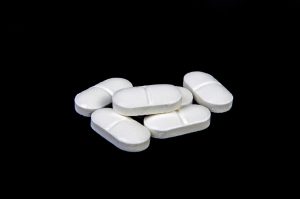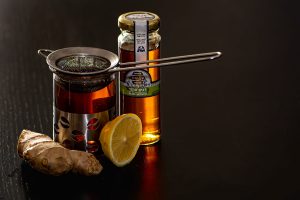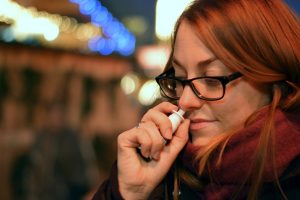 You can manage most upper respiratory tract infections yourself. There is no cure or magic bullet but there are remedies that will help with symptoms and even shorten the length of time you are ill. Indeed, there is a drive for individuals to practise self care to better use the NHS services. Every year there are an estimated 18 million GP appointments for conditions that could be managed with self-care. This inappropriate use of GP services is estimated to cost between 3% and 5% of the annual UK health budget. Having said that, there are still some instances when it is appropriate to consult with a healthcare professional such as a pharmacist or your GP (See the section on seeking medical help).
You can manage most upper respiratory tract infections yourself. There is no cure or magic bullet but there are remedies that will help with symptoms and even shorten the length of time you are ill. Indeed, there is a drive for individuals to practise self care to better use the NHS services. Every year there are an estimated 18 million GP appointments for conditions that could be managed with self-care. This inappropriate use of GP services is estimated to cost between 3% and 5% of the annual UK health budget. Having said that, there are still some instances when it is appropriate to consult with a healthcare professional such as a pharmacist or your GP (See the section on seeking medical help).
Most upper respiratory tract infections can be managed with products that can be bought over the counter from a pharmacy or other shops. Antibiotics are rarely required for most infections because they are caused by viruses and clear in a few weeks.
It is important to stay hydrated and not to smoke. Remedies can be bought over the counter to help with the symptoms but will not change the duration of your illness. Pelargonium has been shown to reduce the severity of symptoms of upper respiratory infections.
Most respiratory tract infections will get better in two to three weeks. If you have symptoms for more than three weeks you should see your GP.
Headaches and muscle aches or pains that you get with many viral infections can be relieved with widely available pain killing medications. As well as relieving pain, they will also help to reduce fever. Some will also reduce the inflammation of the lining of the airways.
 You should always follow the instructions on the cartons and information leaflets inside. Never exceed the stated dose.
You should always follow the instructions on the cartons and information leaflets inside. Never exceed the stated dose.
Paracetamol is recommended and can be used by most people.
Ibuprofen can be taken by many but not those with stomach ulcers and some people with asthma. If in doubt ask your pharmacist or doctor.
Coughing is actually a good thing when you have an upper respiratory tract infection because it helps to remove the excess mucus that is produced. There are a number of types of cough medicines. They are sometimes mixed with other active ingredients (pain killers or decongestants) so you should always read the label.
 Honey is often recommended for helping coughs. It can be either consumed alone or mixed with warm lemon or tea. Surprisingly, research suggested that honey was superior to usual care for improving symptoms of upper respiratory tract infections. Honey must not be given to children under one year of age.
Honey is often recommended for helping coughs. It can be either consumed alone or mixed with warm lemon or tea. Surprisingly, research suggested that honey was superior to usual care for improving symptoms of upper respiratory tract infections. Honey must not be given to children under one year of age.
Pelargonium has been shown to be effective in treating common cold symptoms including cough symptoms and is recommended on the NHS website.
The two key types of cough medicine:
Expectorants: these substances help to clear mucus from the airways by loosening it. One of the more common active ingredients is guaifenesin and is recommended for self care of coughs by NICE.
Cough suppressants (antitussives): these work by stopping the cough reflex by acting on the nerves. They are recommended for the relief of unproductive coughs. Dextromethorphan is a common ingredient. Pholcodine was another active ingredient but all products containing pholcodine were removed from sale in the UK in March 2023 by the MHRA.
Other medicines that can contribute to reducing coughs are antihistamines which reduce mucus production and decongestants.
Decongestants can be used for short-term relief of a blocked nose (nasal congestion). With a viral infection which enters the body through the nose the blood vessels become inflamed. A blocked or stuffy nose makes it difficult to breathe through your nose, affects your sense of smell and taste. The lining of the nose (mucosa) also produces more mucus when inflamed which causes a runny nose. That is why it is important to drink plenty of fluids when you have a cold to help keep the mucus thin so it drains more easily.
There is a variety of remedies that can reduce nasal congestion. Simple steam baths placing a towel over your head with boiled water in a sink or bowl for about 10 to 15 minutes. There are dedicated decongestant products but some cold and flu remedies contain decongestants and antihistamines. It is important to always read the labels of such products and not use additional decongestants if the remedy already contains one.

Decongestants are available as nasals sprays or drops, tablets, liquids or powders to dissolve in water. It is important that decongestants are not used for more than a week. This is because over long use can lead to rebound congestion where there is nasal congestion without an infection or allergy.
Not everyone can take decongestants. if you have diabetes, high blood pressure, hyperthyroidism, liver, kidney, heart or circulation problems or glaucoma you should get advice form your pharmacist or GP.
Pelargonium is the traditional herbal medicinal product containing a dry extract from Pelargonium root. Pelargonium is licensed in the UK under the Traditional Herbal Registration scheme to treat upper respiratory tract infections.
Pelargonium tablets contain 20 mg of extract and one tablet should be taken three times a day. Treatment should be continued for a further two to three days after symptoms have improved.
As with all medicines, you should always read the information leaflet that comes in the box.
Pelargonium tablets can be obtained directly in the UK from Centoreze.co.uk
Most respiratory tract infections are viral and will get better within two to three weeks. However, there are some times when it is appropriate to see your GP.
You should see your GP if any of the following apply:
- you have a cough that lasts more then three weeks
- you cough up blood or mucus with blood in it
- you feel extremely unwell or your symptoms get worse
- you have a weakened immune system
- you have a long term health condition
It does not necessarily mean the doctor will prescribe you an antibiotic. There are guidelines for doctors from NICE to help them decide when antibiotics are appropriate.
It is near impossible to completely avoid the viruses that cause respiratory tract infections but there are some simple measures to reduce your risk.
Regular hand washing removes viruses form the skin. Viruses get picked up from door handles and surfaces. A Cochrane review suggested that hand hygiene was effective in reducing the spread of respiratory viruses.
Avoid touching your face, especially eyes, nose and mouth. This will prevent the viruses getting into your body.
Avoid close contact with someone who has symptoms of a respiratory infection and avoid sharing their eating and personal hygiene items.
If you are at higher risk because of your age or underlying medical problem, annual vaccination against influenza is recommended.
The evidence supporting the routine use of vitamin and mineral supplements to prevent respiratory tract infections is mixed. In reviews of the evidence the conclusions are that supplements either have no effect or a very limited effect. It is known that eating a balanced diet and taking regular exercise is beneficial in maintaining good general health which will be in your favour when you succumb to a viral infection of your airways.